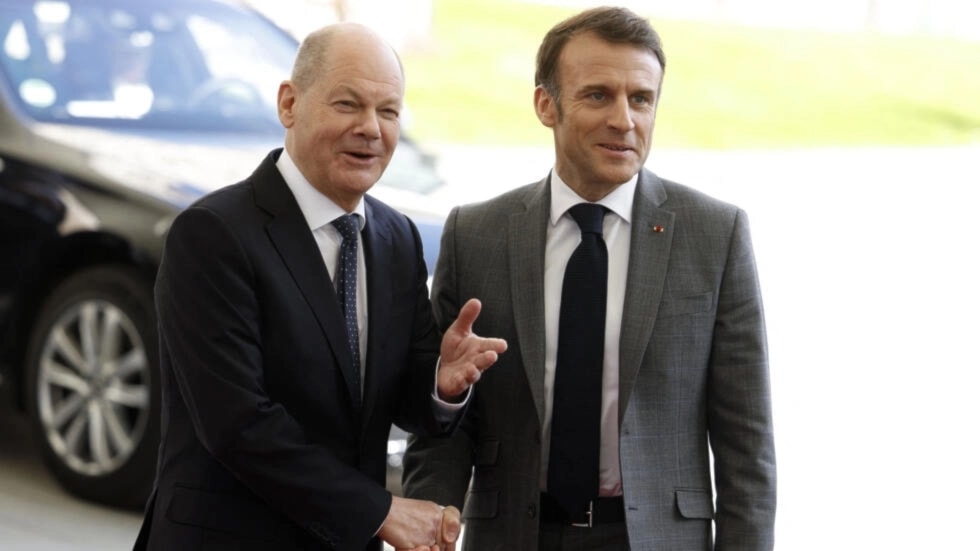Macron heads to Germany in first French presidential visit in 24 years
The two leaders are set to meet to demonstrate unity between the European Union's two largest powers before the upcoming elections.
-

German Chancellor Olaf Scholz (L) shakes hands with French President Emmanuel Macron at the Chancellery in Berlin on March 15, 2024. (AFP)
French President Emmanuel Macron is set to arrive in Germany on Sunday for a three-day state visit, followed by a bilateral cabinet meeting. This visit aims to demonstrate unity between the European Union's two largest powers ahead of next month's EU parliamentary elections.
Macron's trip to the capital Berlin, Dresden in the east and Muenster in the west is the first French presidential state visit to Germany in 24 years.
The visit will be closely monitored as a checkup on the health of the German-French relationship, which is pivotal for EU policymaking. This comes at a time of significant challenges for Europe, including the war in Ukraine and the potential election of Donald Trump as US president in November.
Macron vs. Scholz
The two leaders have very different leadership styles, triggering several public clashes on defense and nuclear energy issues. However, compromises were reached on various fronts, from fiscal reform to changes to power market subsidies, allowing the EU to strike deals and put on a more united front.
"There are tensions in the German-French relationship but in part precisely because they have dealt with some difficult topics," said Yann Wernert at the Jacques Delors Institute in Berlin, noting the two countries had also converged on the need to expand the EU eastwards.
The visit is "an attempt at the highest political level to demonstrate that the relationship is working," said Mujtaba Rahman, managing director for Europe at the Eurasia Group think tank. "But there are still fundamental gaps on major questions that are looming over the EU."
Gaps loom over EU
Many questions and gaps are looming over the EU, one being European defense, especially if Trump is elected the next president of the United States, as defense experts are not confident he would be a good ally for Europe.
Trump had earlier stated that he would not protect NATO members from a future attack by Russia if those countries' contributions to the defense alliance were lagging, but that he would encourage Russia "to do whatever the hell they want."
Similarly, a nuclear-armed nation, France has advocated for a more self-reliant Europe in defense matters. However, it has been displeased by Germany's decision to predominantly purchase American equipment for its European Sky Shield Initiative air defense system.
On the other hand, Germany argues that there is no credible alternative to the US military umbrella and that Europe cannot afford to wait for a homegrown defense industry to be ready to counter threats.

 3 Min Read
3 Min Read








